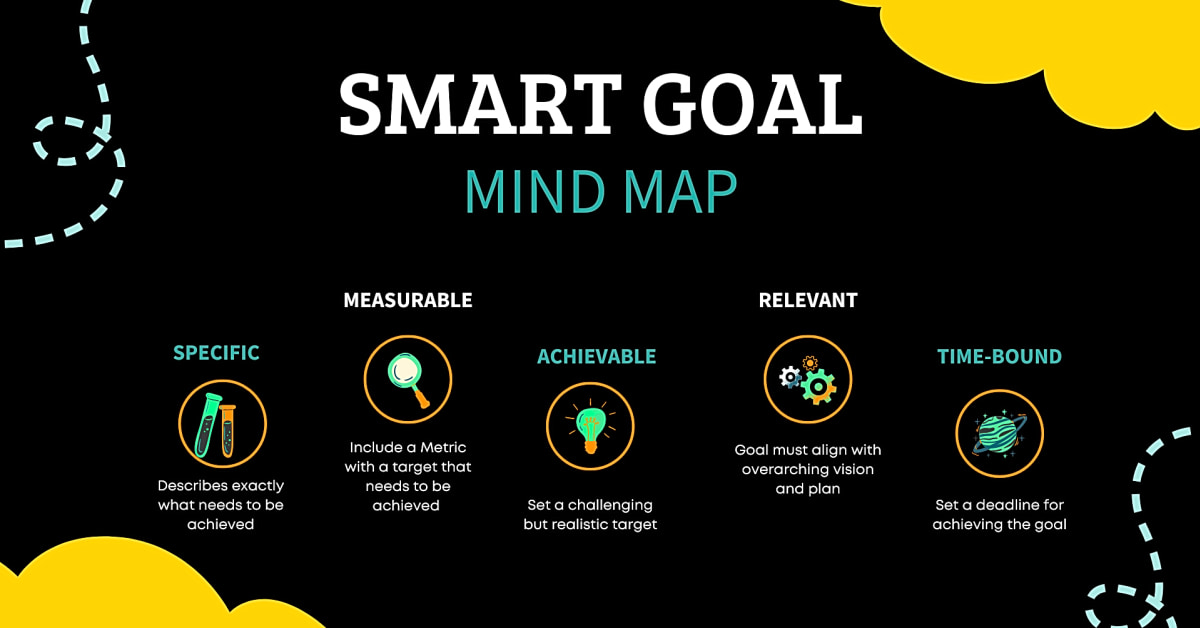Goal setting is a crucial aspect of achieving success in any business. It involves identifying specific objectives and creating a plan to reach them. Whether you are an entrepreneur starting your own company or a manager looking to improve your team’s performance, setting clear and achievable goals is essential for growth and progress. In this article, we will delve into the definition of goal setting and its importance in the business world. We will also explore how effective goal setting can lead to improved productivity, motivation, and overall success for individuals and organizations alike. So, let’s begin our journey into the world of goal setting and discover how it can help you achieve your desired outcomes.
Goal setting is an essential aspect of business strategy, providing companies with a clear direction and purpose. By identifying specific and achievable objectives within a set timeframe, goal setting creates a roadmap for success. Not only does it motivate employees, but it also helps increase productivity and efficiency.
In today’s competitive business world, having a strategic plan is crucial for staying ahead of the competition. Goal setting plays a vital role in this process by aligning all efforts towards a common goal. By setting specific and measurable targets, businesses can better track their progress and make necessary adjustments to stay on track.
One of the key benefits of goal setting in business strategy is its ability to improve company performance and gain a competitive advantage. By setting realistic and achievable goals, companies can focus their resources and efforts in the right direction. This not only leads to increased productivity but also helps businesses stay ahead of the curve.
Furthermore, goal setting is closely linked to strategic planning, business development, and market analysis. As part of the strategic planning process, goal setting helps businesses identify their strengths, weaknesses, opportunities, and threats. This information is crucial for setting realistic goals and creating a roadmap for achieving them.
Risk management also plays a significant role in goal setting and business strategy. By identifying potential risks and developing contingency plans, companies can mitigate potential obstacles that may arise during the goal-setting process. Additionally, goal setting can also help manage organizational growth by providing a structured approach to achieving targets.
Conducting a SWOT analysis and market research is essential for setting realistic and achievable goals. A SWOT analysis helps identify internal strengths and weaknesses, while market research provides insights into external opportunities and threats. By combining these two approaches, businesses can set goals that are both challenging yet attainable.
Real-life examples of companies that have successfully implemented goal setting strategies include Google, Amazon, and Microsoft. These companies have set ambitious yet achievable goals, such as increasing market share or developing innovative products. By consistently setting and achieving goals, these companies have been able to stay ahead of their competition and maintain their success.
While goal setting has numerous benefits, it is important to acknowledge potential drawbacks and opposing viewpoints. Some may argue that goal setting can lead to a narrow focus and discourage creativity. However, this can be mitigated by setting both short-term and long-term goals that allow for flexibility and adaptability.
The Importance of Setting Specific Goals
use HTML structure with specific goals only for main keywords and
Clearly defining goals is crucial for success.
do not use “newline character”
The Role of Timeframes in Goal Setting
The Role of Timeframes in Goal Setting
In order for goals to be effective, it is essential to set a timeline for achieving them. A timeline helps to keep goals on track by providing a sense of urgency and accountability. Without a specific deadline, goals can easily become vague and lack direction. By setting a timeframe, businesses can prioritize their efforts and monitor progress towards their goals.
Moreover, timeframes also allow businesses to make necessary adjustments and course corrections if they are falling behind or facing unexpected challenges. This helps to ensure that the goals remain achievable and relevant to the current business landscape.
The Power of Measurable Objectives
In today’s fast-paced and competitive business world, setting goals is essential for success. It allows companies to focus their efforts, measure progress, and make necessary adjustments to stay on track. Measuring progress not only helps companies stay on track, but it also allows for adjustments and improvements to be made along the way.
With measurable objectives in place, businesses can track their progress and identify areas that need improvement. This allows for a more efficient use of resources and a better understanding of what is working and what needs to be changed. Without the ability to measure progress, companies may continue down a path that is not yielding the desired results.
Additionally, having measurable objectives in goal setting allows for a clearer understanding of the end goal. By setting specific and measurable targets, businesses can have a clear direction and purpose. This helps to keep employees motivated and focused on achieving the desired outcomes.
In conclusion, goal setting is a fundamental aspect of business strategy. By setting clear and achievable goals, companies can improve their performance, gain a competitive advantage, and successfully navigate through challenges and opportunities. It is important to regularly review and adjust goals as needed to stay on track and achieve long-term success. Remember, the key to effective goal setting is to be specific, measurable, and time-bound.


